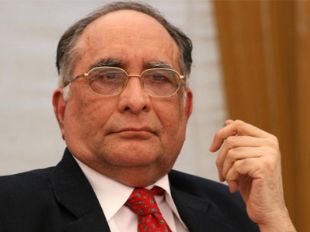
Aurangabad, September 2: The Constitution can replace the religious texts in today's times, Chief Justice of India SH Kapadia said in Aurangabad.
"The Constitution should be studied by Indians to know about citizens' rights. If you read it, there is no need to read the religious books as you may find God in our Constitution. Gaining knowledge of the Constitution would be a real homage to Dr Babasaheb Ambedkar," he said, delivering a lecture on 'Constitutional Ethics' at Dr Babasaheb Ambedkar Marathwada University.
Chief Justice of Bombay High Court Justice Mohit Shah was also present on this occasion. "I belong to the Parsi community and would have never thought of becoming the Chief Justice anywhere (else) in the world. It is only in India that it was possible due to the Constitution," said the CJI.
The judges should be acquainted with multiple fields of knowledge, which can help them in the court, he said. Judges can learn a lot from "constructive criticism" but not from "destructive criticism", he said.
Poverty was "a basic violation of human rights", he said, talking about the need to have a "balanced" society.






Comments
Add new comment